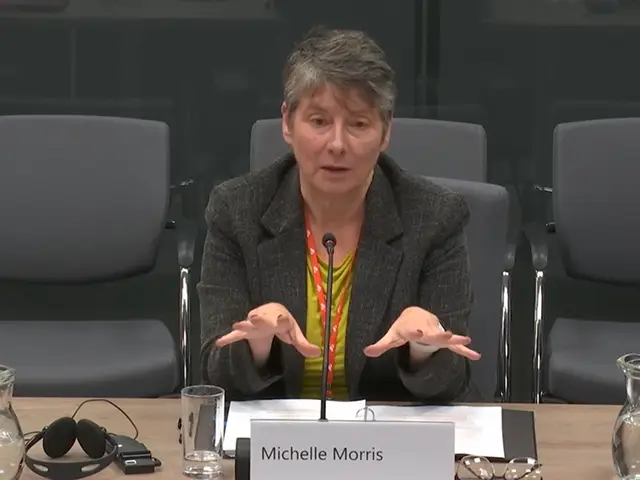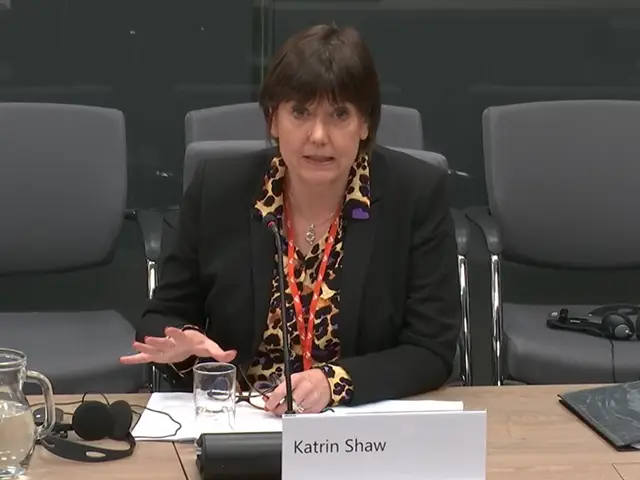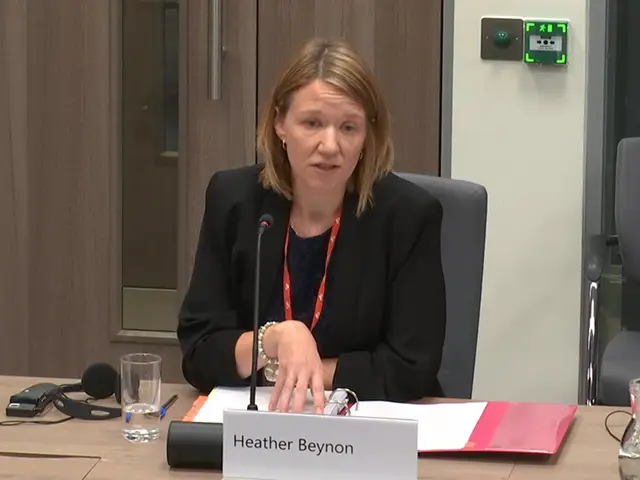Support quality, independent, local journalism…that matters
From just £1 a month you can help fund our work – and use our website without adverts. Become a member today

A public services watchdog received a record 3,500 formal complaints last year – a 10% increase that is stretching resources to their limit, a Senedd committee has heard.
Michelle Morris, the public services ombudsman for Wales, warned her office has “reached capacity” with its staff having to queue new cases to manage the workload.
Appearing before the finance committee on Thursday (October 16), the ombudsman said her office is receiving increasingly complex cases that require resource-intensive investigation.
Ms Morris told Senedd Members: “We felt we were operating very close to capacity with the case numbers we experienced the year before and given the increases we’ve now seen last year on top of that, we really do feel that we’ve reached capacity with our current workforce.”
The ombudsman has requested a 5.4% budget increase, with 3% covering pay and price pressures – and the remaining 2.4% needed to cope with increases in demand.
‘Juggling act’

Katrin Shaw, the ombudsman’s casework and legal director, warned of a “constant juggling act” to manage demand and told the committee: “We are fully stretched.”
She added: “As soon as we move resources to assist in one area, we are so stretched that we start seeing issues in another.”
Ms Shaw expressed concerns about the impact of artificial intelligence, with complainants using AI tools to write their submissions – leading to a surge in cases.
She pointed to the problem of premature complaints before an issue has been raised with a public body itself and AI tools giving incorrect information about the ombudsman’s powers.
While the average investigation time has improved to 53 weeks, Ms Shaw said she was “really concerned” about the number of “aged investigations” open for more than a year.
‘Major investigations’
In 2019, the office was given powers to carry out wider “own-initiative” investigations – launching inquiries into homelessness and carers’ needs in 2022 and 2024 respectively.
Ms Morris suggested the next inquiry will focus on social housing, with a consultation in early November to confirm the topic and scope before a full investigation in the new year.
She told the committee: “What I’m minded to look at is the issue of social housing and the issue of disrepair, damp and mould in social housing, and particularly how that affects more vulnerable groups within our community.”
The ombudsman explained her office will seek views from public bodies, tenants’ associations and Senedd Members to “first confirm that is the right way to go”.
Ms Morris reflected on lessons learned from the first two major investigations, suggesting the next inquiry will have a tighter scope, targeted consultation and clearer engagement.
‘Significant risk’
But her office warned such proactive investigations could be jeopardised if the budget is hit by a failure to pass the Welsh Government’s annual spending plans.
If not passed by the start of the financial year in April, funding for the ombudsman’s office would revert to 75% of last year’s budget – rising to 95% if not agreed by the end of July.
Finance director Heather Beynon warned of job losses in such a scenario, saying the office would not be able to absorb redundancy costs and would need to request further funding.

Ms Beynon told the committee the cuts would have an “adverse impact on the complainant experience”, leading to longer response times and less detailed consideration of cases.
She said: “Essentially, it wouldn’t allow us to achieve our strategic aims and objectives, we feel it would expose us to a significant risk, and it would take us a long time to recover from.”
Support quality, independent, local journalism…that matters
From just £1 a month you can help fund our work – and use our website without adverts.
Become a member today
